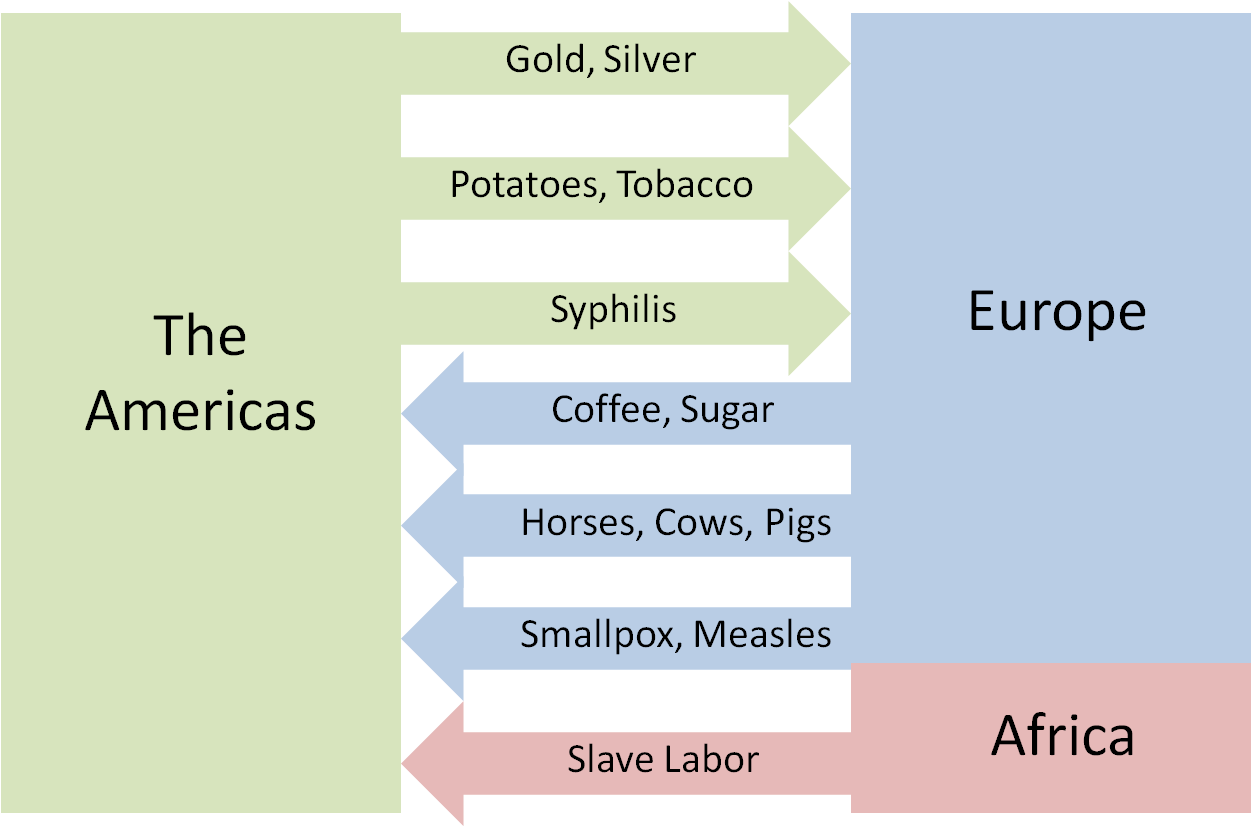1491–1607
Practice Questions
AP U.S. History › 1491–1607
In 1493: Uncovering the New World Columbus Created (published in 2011), the historian Charles H. Mann describes the effects of the Columbian exchange: the unwitting transfer of plants, animals, and microbes between the New World and the Old which transformed life on both sides of the Atlantic Ocean.
According to Mann, among the living things exchanged were tomatoes, potatoes, sugarcane, horses, corn, smallpox, measles, cacao, vanilla, tobacco, rice, onions, and bananas.
Which of the following statements best describes the goals of Europeans traveling to the New World in the 1400s and 1500s?
In 1493: Uncovering the New World Columbus Created (published in 2011), the historian Charles H. Mann describes the effects of the Columbian exchange: the unwitting transfer of plants, animals, and microbes between the New World and the Old which transformed life on both sides of the Atlantic Ocean.
According to Mann, among the living things exchanged were tomatoes, potatoes, sugarcane, horses, corn, smallpox, measles, cacao, vanilla, tobacco, rice, onions, and bananas.
Which of the following statements best describes the goals of Europeans traveling to the New World in the 1400s and 1500s?

Which of the following events was most directly caused by the exchange network depicted in the diagram?

Which of the following events was most directly caused by the exchange network depicted in the diagram?
In 1493: Uncovering the New World Columbus Created (published in 2011), the historian Charles H. Mann describes the effects of the Columbian exchange: the unwitting transfer of plants, animals, and microbes between the New World and the Old which transformed life on both sides of the Atlantic Ocean.
According to Mann, among the living things exchanged were tomatoes, potatoes, sugarcane, horses, corn, smallpox, measles, cacao, vanilla, tobacco, rice, onions, and bananas.
Which of the following was a direct, long-term effect of the European arrival in the Americas?
In 1493: Uncovering the New World Columbus Created (published in 2011), the historian Charles H. Mann describes the effects of the Columbian exchange: the unwitting transfer of plants, animals, and microbes between the New World and the Old which transformed life on both sides of the Atlantic Ocean.
According to Mann, among the living things exchanged were tomatoes, potatoes, sugarcane, horses, corn, smallpox, measles, cacao, vanilla, tobacco, rice, onions, and bananas.
Which of the following was a direct, long-term effect of the European arrival in the Americas?

Which of the following statements is best supported by the information provided in the diagram above?

Which of the following statements is best supported by the information provided in the diagram above?